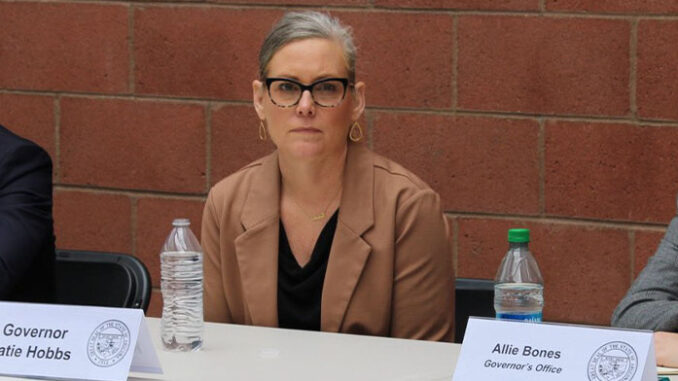In an Arizona Daily Independent story, Tom Horne, Arizona’s Superintendent of Public Instruction, delivered a staunch rebuttal to Governor Katie Hobbs’ proposed reforms to the Empowerment Scholarship Account (ESA) program.
One of Hobbs’ proposals, the manual review of ESA purchases over $500, is redundant, as Horne’s office already meticulously scrutinizes all ESA expenses. Furthermore, Horne’s leadership has led to the rejection of thousands of ESA applications due to insufficient documentation and the suspension of numerous accounts, highlighting the program’s robust oversight. As was noted in the article:
According to Horne, in 2023, under the leadership of ESA administrator John Ward, who came to the Department of Education from the Auditor General’s Office, several thousand ESA applications were rejected “for lack of adequate documentation.” The Department also “suspended almost 2,200 accounts totaling $21 million because the student was enrolled in a public school.”
Speaker of the House Ben Toma has vehemently opposed Hobbs’ reforms. He perceives them as direct attacks on private education, driven by political motives rather than educational welfare. Toma states in the article:
“Empowerment Scholarship Accounts are wildly popular with Arizona parents because they leverage private sector solutions to offer the best educational opportunities for their children,” said Toma. “Meanwhile, Governor Hobbs and Democratic Party legislators now seek to strangle ESAs and private education with bureaucracy and regulation. I won’t allow that to happen.”
Superintendent Horne also called out the group known as Save Our Schools (SOS) for spreading falsehoods about ESA expenses, revealing a pattern of deception and misinformation. He refuted claims of frivolous spending and highlighted the group’s tactic of fabricating evidence to mislead officials and the public. As Horne is quoted as saying:
“This is a longstanding pattern by Save Our Schools,” continued Horne. “They continue to say that outlandish purchases such as trips to Disney parks, personal vacations, food items, ocean cruises and the like are being approved as ESA expenses when they are not. The interesting thing is that Save Our Schools not only lied and fabricated but turned the actual facts on their head.”
Hobbs’ plan, which aims to impose public school-like standards on private institutions and increase regulation, is being widely criticized for potentially suffocating the successful ESA program. This move is seen as economically damaging and threatening the educational freedom of many Arizona families, particularly those who benefit from the program’s flexibility and innovation.
Critics have lambasted the proposed reforms as needless and disruptive. They argue that these changes will only burden an already well-monitored system, undermining the effectiveness of ESAs and disregarding the program’s proven success. Former Superintendent Diane Douglas said in the story:
“Gov. Hobbs apparently needs to familiarize herself with ARS 15-161 prohibiting state control over private schools – for very legitimate reasons,” said Douglas. “Assuming she defines “minimum education requirements” as a degree from a college of education and state certification one needs to look no further than the abysmal AZ Student Achievement Assessment results to realize these requirements are already proven failures.”
Read the full article HERE.

